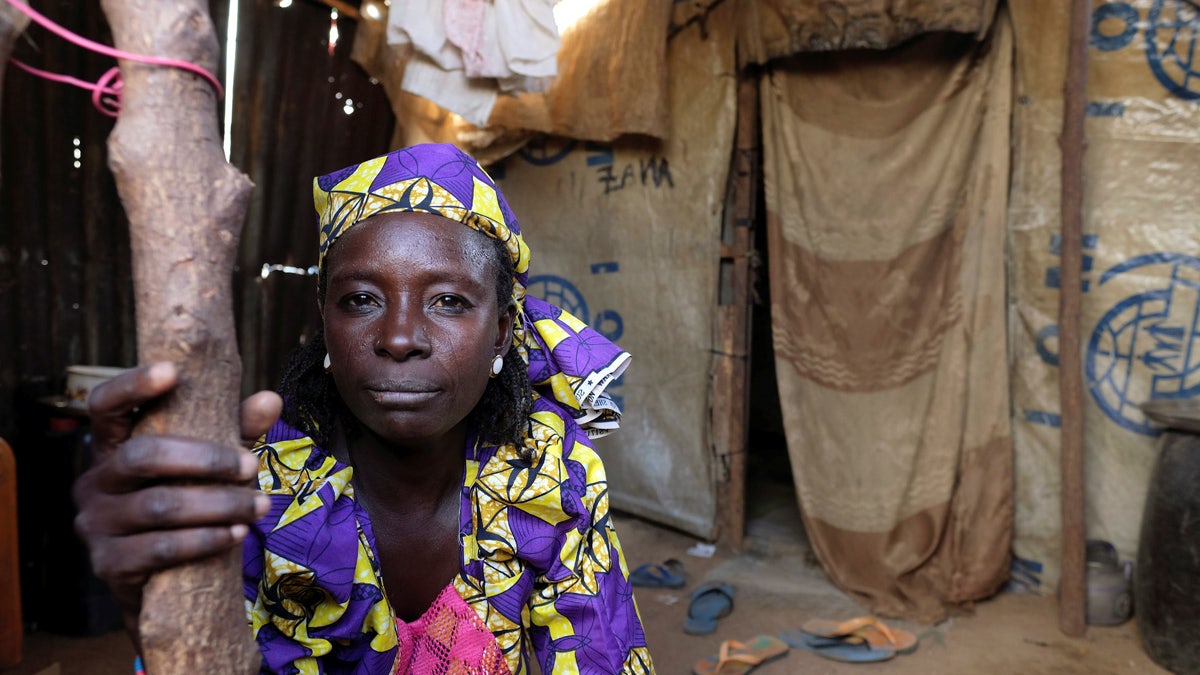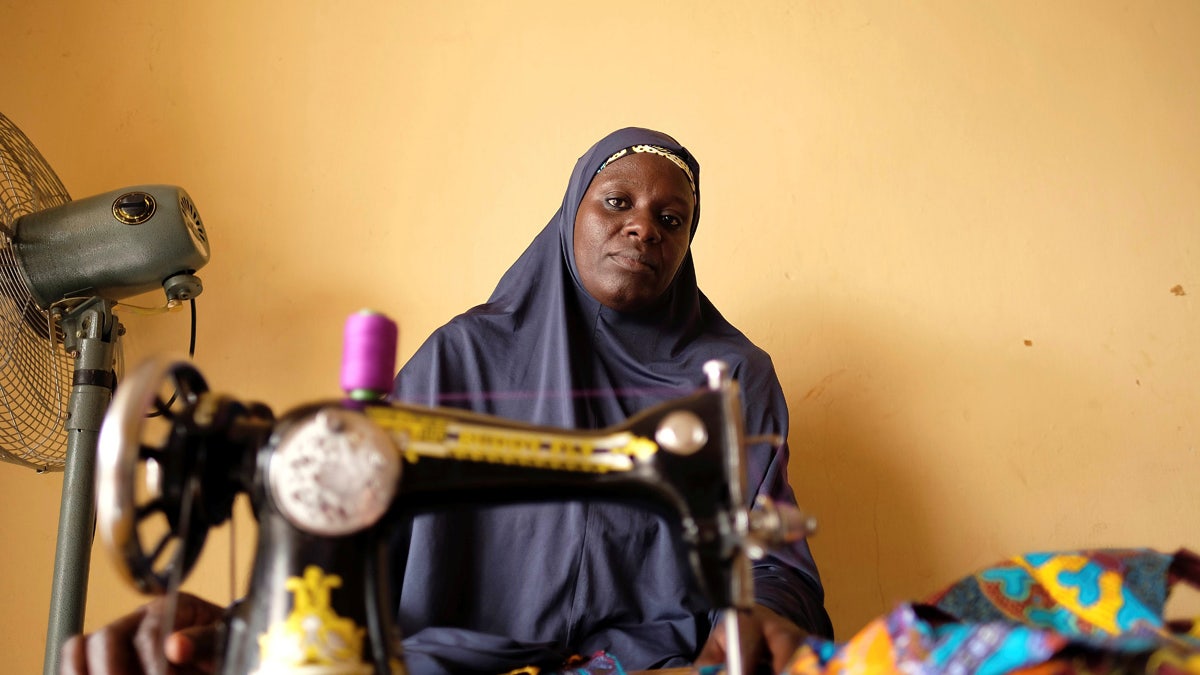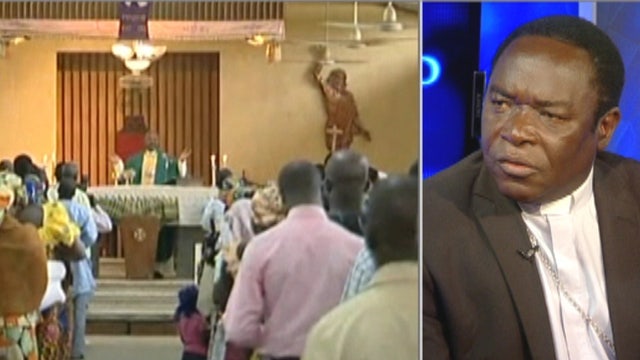
Zainab Bukar, an internally displaced person living in Bama camp, Nigeria, poses for a photograph in a shelter, Nov. 23, 2017. (Reuters)
After eight years of conflict with Boko Haram, Nigeria has a new strategy to protect its citizens from the terrorist group: fortress towns.
Some of the nearly 2 million displaced people who have fled rural areas in northeast Nigeria now will be housed in fortified towns, ringed by farms, with the rest of the countryside effectively left to fend for itself.
This new vision for the Borno state is a stark admission of the harsh reality on the ground.
For two years, the military and government have said Boko Haram is all but defeated, and the remnants are being mopped up.
However, the military is largely unable to control territory beyond the cities and towns it has wrested back from Boko Haram.
Kashim Shettima, the governor of Borno state, said it was not possible for people to live in small villages.
13 KILLED IN SUICIDE BOMBING AT NIGERIAN MARKET

An unidentified internally displaced woman, who sews fabrics to sell, poses for a photograph in a community centre in Bama in northeast Nigeria, Nov. 23, 2017. (Reuters)
“There’s beauty in numbers, there’s security in numbers. So our target is to congregate all the people in five major urban settlements and provide them with means of livelihood, education, health care and, of course, security,” he told Reuters. “It’s a long-term solution, certainly.”
The plan for the eastern part of the state, centered on the town of Bama, is intended as a pilot scheme to be rolled out in other parts of Borno if it is successful.
Vigilantes, currently members of a group known as the Civilian Joint Task Force, will become agricultural rangers, the governor said.
Aided by Nigerian security forces, they will aim to secure and patrol a 3-mile radius around each garrison town where people can farm.
Peter Lundberg, the United Nations Deputy Humanitarian Coordinator for Nigeria, who heads the organization’s response in the northeast, told Reuters that the reconstruction of Bama town, the second biggest in the state, was “logical.”
Even so, sentiment amongst the displaced is mixed.
“I will support it as long as I will have a place to farm. I am also happy to hear the government will give us protection on the farm because I learnt Boko Haram men are still around,” Abubakar Goni, who lived outside Bama before fleeing to the Borno state capital, told Reuters.
ENVIRONMENTAL GROUP CLAIMS LOGS ILLEGALLY SHIPPED FROM NIGERIA
It is not clear how the returnees will be housed. There are already 15,000 people in a crowded camp for displaced local residents set up by the military.
The U.N. had planned to move them into new shelters that would hold 30,000 people, but the military said it could not oversee two camps simultaneously, U.N. and military officials told Reuters. The government has announced plans to build 3,000 homes in the Bama area. But there are concerns about how people sent to the town will manage, since many did not originally live there.
“It’s one thing to move people to Bama,” said Lundberg. “Unless the engine of the economy can restart, the risk is that people are moving back to places where they will become very dependent (on aid).”
Aid workers said the line between the fortified towns and the dangerous countryside means that people have a choice: live in virtual quarantine, or return to their homes in the countryside, where Boko Haram roam, and be treated by security forces as potential insurgency sympathizers.
“You’re imprisoned, but you’re safe,” said one senior relief worker to Reuters, speaking on condition of anonymity. “If you prefer your own life you can do it on the outside.”
Reuters reports that Boko Haram’s recent attacks, including a suicide bombing that killed at least 50 in a mosque in Adamawa state last week, are the “last kicks of a dying horse,” Nigeria’s Information Minister Lai Mohammed said last Sunday.
On Saturday, suicide bombers killed at least 13 people in the town of Biu and injured 53 others.





















